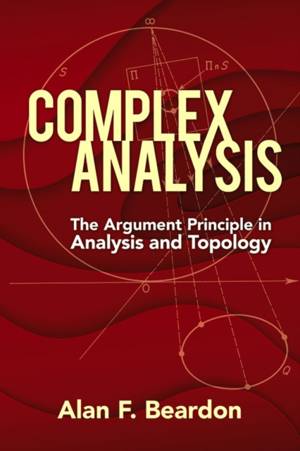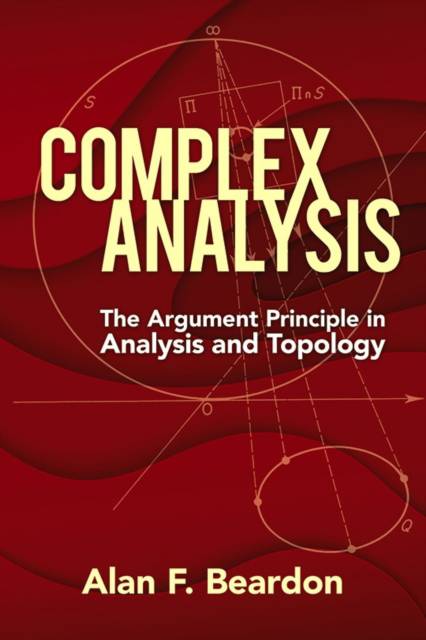
Je cadeautjes zeker op tijd in huis hebben voor de feestdagen? Kom langs in onze winkels en vind het perfecte geschenk!
- Afhalen na 1 uur in een winkel met voorraad
- Gratis thuislevering in België vanaf € 30
- Ruim aanbod met 7 miljoen producten
Je cadeautjes zeker op tijd in huis hebben voor de feestdagen? Kom langs in onze winkels en vind het perfecte geschenk!
- Afhalen na 1 uur in een winkel met voorraad
- Gratis thuislevering in België vanaf € 30
- Ruim aanbod met 7 miljoen producten
Zoeken
Omschrijving
With its emphasis on the argument principle in analysis and topology, this book represents a different approach to the teaching of complex analysis. The three-part treatment provides geometrical insights by covering angles, basic complex analysis, and interactions with plane topology while focusing on the concepts of angle and winding numbers.
Part I takes a critical look at the concept of an angle, illustrating that because a nonzero complex number varies continuously, one may select a continuously changing value of its argument. Part II builds upon this material, using the argument and its continuous variation as a tool in further studies and clarifying the complementary aspects of complex analysis and plane topology. Part III explores the link between the two subjects to their mutual benefit. The first two sections are intended for advanced undergraduates and graduate students in mathematics and contain sufficient material for a single course. The final section is geared toward the complex analyst and is intended to provide a foundation for further study.
Part I takes a critical look at the concept of an angle, illustrating that because a nonzero complex number varies continuously, one may select a continuously changing value of its argument. Part II builds upon this material, using the argument and its continuous variation as a tool in further studies and clarifying the complementary aspects of complex analysis and plane topology. Part III explores the link between the two subjects to their mutual benefit. The first two sections are intended for advanced undergraduates and graduate students in mathematics and contain sufficient material for a single course. The final section is geared toward the complex analyst and is intended to provide a foundation for further study.
Specificaties
Betrokkenen
- Auteur(s):
- Uitgeverij:
Inhoud
- Aantal bladzijden:
- 256
- Taal:
- Engels
- Reeks:
Eigenschappen
- Productcode (EAN):
- 9780486837185
- Verschijningsdatum:
- 18/12/2019
- Uitvoering:
- Paperback
- Formaat:
- Trade paperback (VS)
- Afmetingen:
- 150 mm x 226 mm
- Gewicht:
- 362 g

Alleen bij Standaard Boekhandel
+ 51 punten op je klantenkaart van Standaard Boekhandel
Beoordelingen
We publiceren alleen reviews die voldoen aan de voorwaarden voor reviews. Bekijk onze voorwaarden voor reviews.









